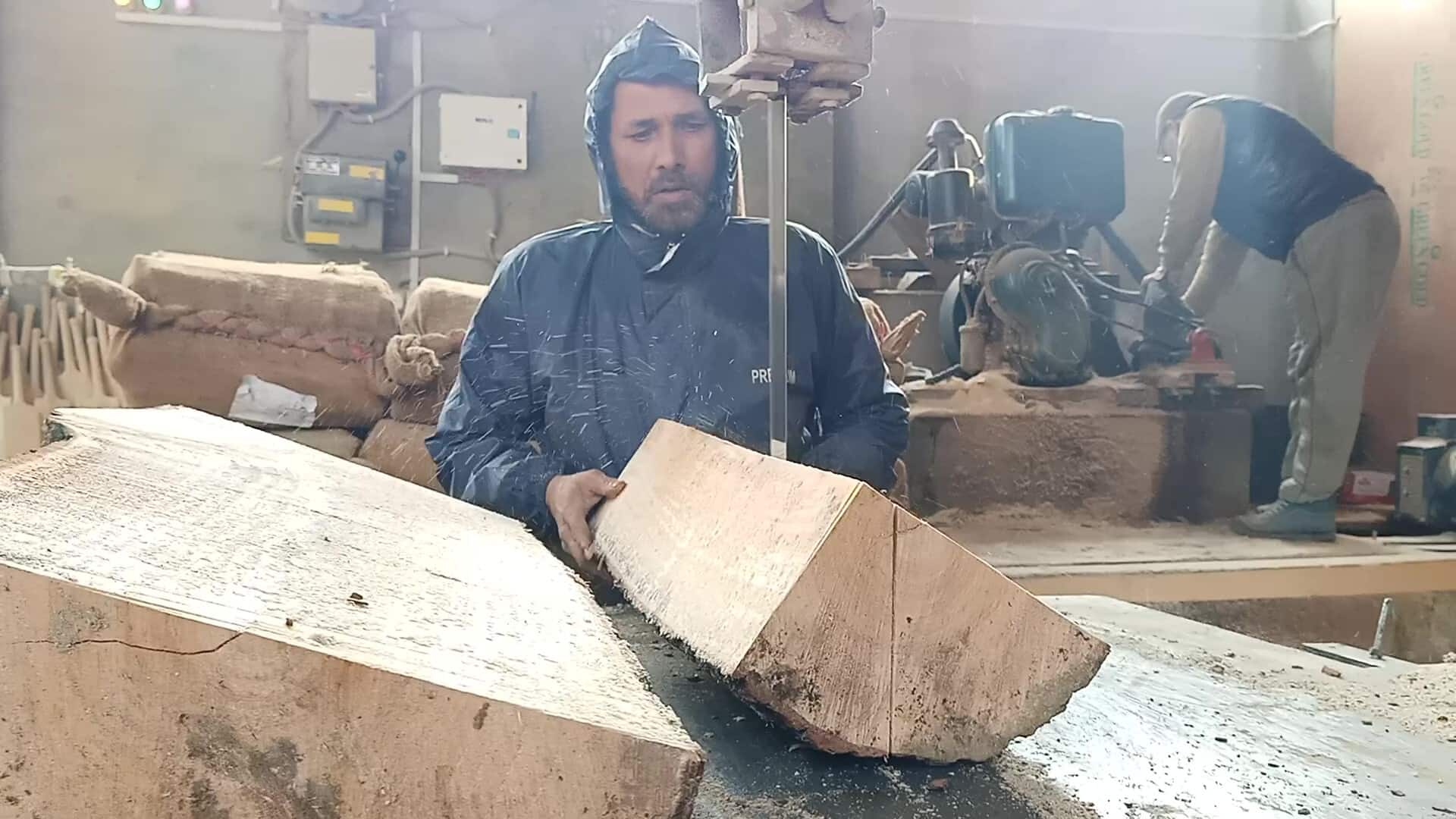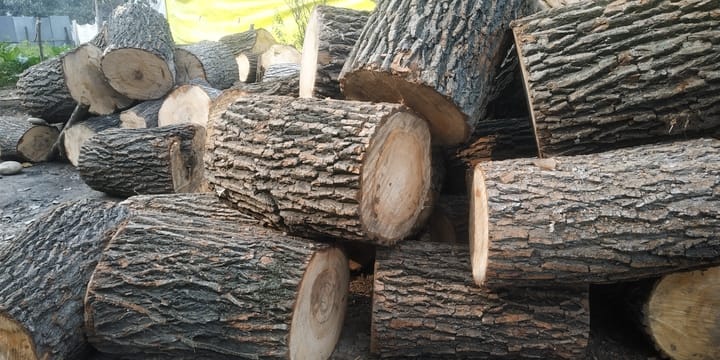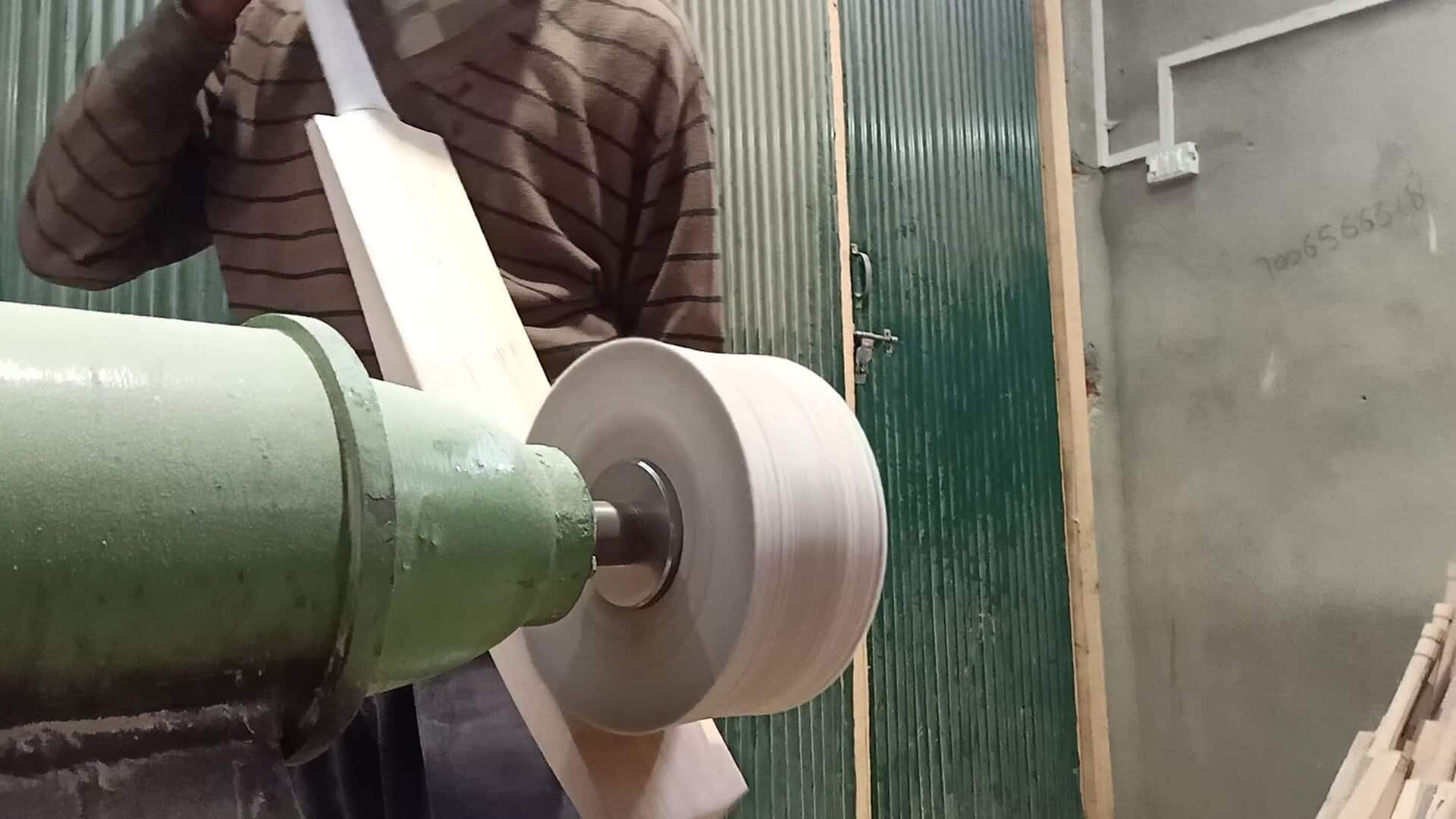



For the first time ever, bats made of the legendary Kashmir willow will make an official appearance at the 50-over Cricket World Cup scheduled to be held in October in India.
Bats manufactured by GR8 Sports, a bat manufacturing company in the Sangam area of Jammu and Kashmir’s Anantnag district, will be used by teams such as Sri Lanka, Bangladesh and Afghanistan, said Fawzal Kabeer, owner of GR8 Sports.
Besides Afghanistan, Bangladesh and Sri Lanka, the players from the UAE, West Indies and Oman also used the bat during the World Cup qualifiers held in Zimbabwe.
According to Kabeer, the demand for Kashmir willow bats, an industry on which 2 lakh people directly or indirectly earn their livelihood, surged in the global markets after the international cricket players from Oman and the UAE used them in the T20 World Cups held in the UAE and Australia in 2021 and 2022.
 Of late, the demand for Kashmir willow bats has surged in the global markets.
Of late, the demand for Kashmir willow bats has surged in the global markets.
“The bats crafted in our industry also gained tremendous fame after UAE batter Junaid Siddiqui while using our bat hit the longest six of 109 meters during the ICC T20 World Cup 2022 against Sri Lanka in Australia.”
ICC-certified
After the long wait of 10 years, Kabeer’s GR8 Sports, the first and only International Cricket Council (ICC)-approved brand of J&K got registered with cricket’s governing body on July 7, 2021.
The 31-year-old MBA graduate from Islamic University of Science and Technology Awantipora, Kashmir told Moneycontrol that he has been following all the rules framed by the ICC and has also hired craftsmen whose hard work, expertise, commitment, and willpower have managed to take Kashmir willow to the world.
“Every year I see bats manufactured in Kashmir reaching new heights and more importantly when the bats being made in my unit earn international recognition,” said Kabeer, who has inherited the bat-making unit from his late father Abdul Kabir Dar who had started the bat-making industry in 1974.
Kabeer along with his workers are excited to see the bats made in GR8 Sports unit featuring in the cricket’s mega-event being completely held in India for the first time. “We hope our bats will break all the records. We wish the players using our bats can score as many runs and hit sixes and fours in every match.”
During the last two years, more than 185,000 cricket bats have been exported to different cricket-playing countries but Kabeer wishes that top-ranked players play with the Kashmir-made bats.
 In Kashmir, willow wood comes in bulk from Anantnag, Baramulla, and Kupwara districts.
In Kashmir, willow wood comes in bulk from Anantnag, Baramulla, and Kupwara districts.
According to the figures available with the Department of Industries and Commerce, Kashmir, 400 cricket bat-manufacturing units are functional in Kashmir Valley on the Srinagar-Jammu national highway, welcoming visitors with willow-clefts piled up on both sides of the road. Of these, 220 units are operational in Anantnag district and 180 in Pulwama district.
Inside the sawmills in Sangam, India’s willow bat village, the skilled workers while manufacturing bats are covered with sawdust from head to toe.
The small village, being the major manufacturing house for Kashmir willow bats since the early 1920s is one of three places in the world that produce the finest handmade willow cricket bats—the others being England and Pakistan.
In Kashmir, willow wood comes in bulk from Anantnag, Baramulla, and Kupwara districts where two to three-decades-old willow trees are cut and ultimately yield the maximum number of clefts used in bat making.
Due to the rousing response for bats made in the Valley, the government has started the process to provide the bats made in Kashmir a geographical indication (GI) tag, an indication which identifies a product as originating in that territory, where a given quality, reputation or characteristic of the product is essentially attributable to its geographic origin to the product.

Kashmir’s cricket bat-making industry, producing over 30 lakh bats annually was struggling until Kabeer swung into action and took the willow bats of Kashmir international.
“The bats made in Kashmir were losing significance mainly because the willow clefts of Kashmir were smuggled out of the Valley, and dealers in Uttar Pradesh and Punjab were hijacking the bat supply of Kashmir. Therefore, I started manufacturing bats and subsequently marketed them in various countries.”

Kabeer claimed that Kashmir willow bats have given tough competition to English willow bats because the bats made in Kashmir are comparatively sold at low rates.
The pricing as per him remains one of the key factors as international editions of English willow bats in the market cost around Rs. 85,000 to Rs 1.5 lakh while Kashmir willow bats are sold between Rs. 10,000 and Rs 15,000.
“Kashmir willow has 29 different species but we require Salix alba var caerulea, white willow tree, to produce bats. The bats made in Kashmir are as good as bats made in England. Our bats have been successfully tested in T20 format and now the bats will be featured in ODI format and then the next target is to see our bats shining in Test format,” said Kabeer with a smile.
Discover the latest Business News, Sensex, and Nifty updates. Obtain Personal Finance insights, tax queries, and expert opinions on Moneycontrol or download the Moneycontrol App to stay updated!
Find the best of Al News in one place, specially curated for you every weekend.
Stay on top of the latest tech trends and biggest startup news.